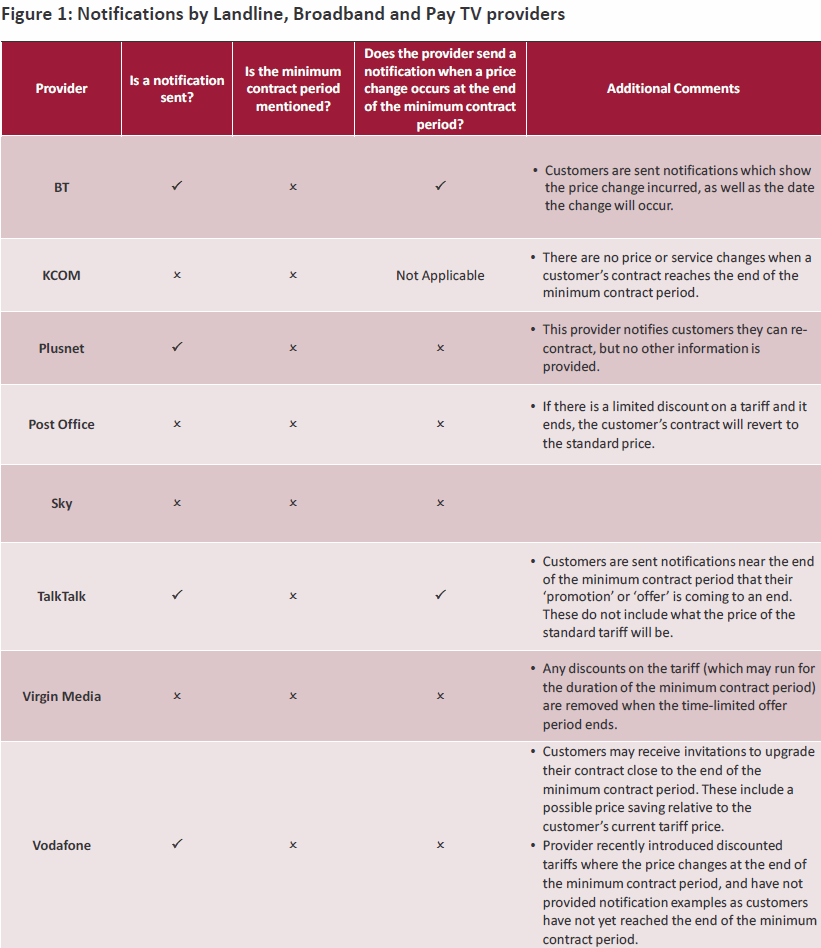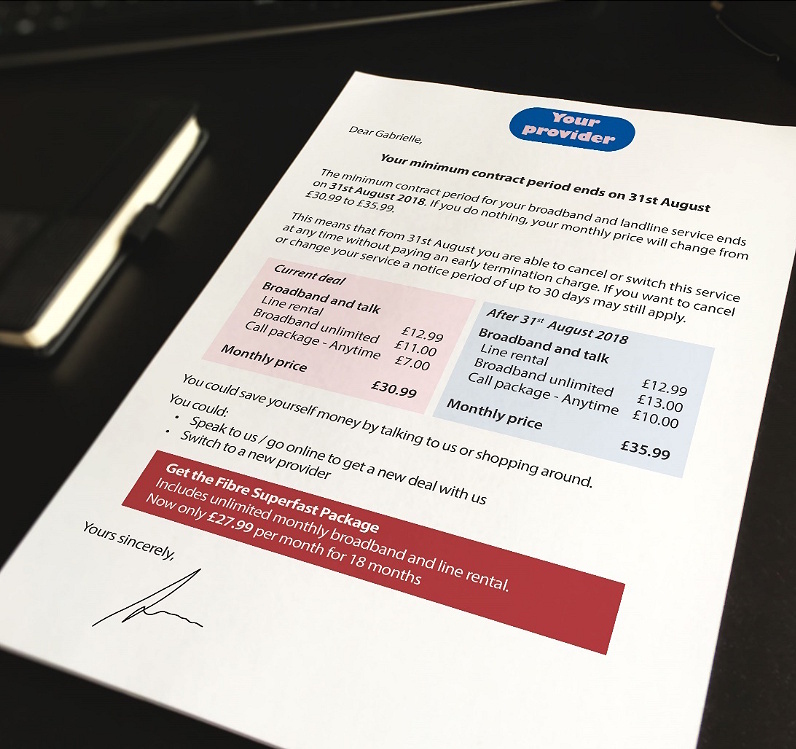Ofcom Force More Contract Clarity for UK Broadband and Mobile Users
The national UK telecoms regulator has today proposed new rules that will require phone / broadband ISPs, Pay TV and Mobile operators to inform customers when they approach the end of their minimum contract term, which might also help to encourage more switching within the market and save consumers money.
At present Ofcom states customers who bundle their landline and broadband services pay, on average, around 20% more when they are out of the minimum term for their contract and more than 20 million customers are currently outside their minimum contract period. On top of that more than 10 million are on deals with an automatic price increase at the end.
We should point out that some ISPs already notify consumers when their contract is nearly at an end, although this certainly isn’t universal and many will simply leave the onus to their end-users.
Advertisement

Suffice to say that it’s easy to forget such dates after you’ve signed-up. In response Ofcom has proposed to change things so that providers must now pro-actively inform their customers about the coming end of a contract.
The Proposed Notification
Under the regulator’s proposal, related notifications would be sent to all residential and small-business customers (i.e. 10 employees or fewer) who use services including landline, broadband, pay TV and mobile (either standalone or as a bundle). The notifications should be sent 40-70 days before the contract ends.
Providers would also be required to send a one-off ‘out-of-contract’ notification to all existing customers whose initial contract term has ended, and who weren’t given this information at the time. The notification itself would contain details of any changes to their price or services and let them know their options (upgrades, discount deals etc.).
Advertisement
Lindsey Fussell, Ofcom’s Consumer Group Director, said:
“We’re concerned many people are paying more than they need to – particularly those who are out of contract.
Customers have told us they want to be alerted when their phone, TV or broadband contract is coming to an end, and get advice on their options. Under our plans, providers would have to do exactly that.”
One important point, which isn’t mentioned in the press release, is that the new rules will only apply for any contracts that have a minimum term period of 6 months or more. “We do not consider that customers who take out monthly rolling (30-day) contracts should be included given the short minimum term for these contracts,” added Ofcom.
The regulator now intends to consult upon the proposals until 9th October 2018, before issuing a final statement. After that Ofcom envisages that consumers should start to receive end-of-contract notifications from 6 months after the date of their final statement, and that they should receive the one-off out-of-contract notification within 9 months.
An example of such a notification can be found below.

Advertisement
Mark is a professional technology writer, IT consultant and computer engineer from Dorset (England), he also founded ISPreview in 1999 and enjoys analysing the latest telecoms and broadband developments. Find me on X (Twitter), Mastodon, Facebook, BlueSky, Threads.net and Linkedin.
« Wireless ISP Quickline Prep Extension to Cover 370 Lincolnshire Homes
















































Comments are closed